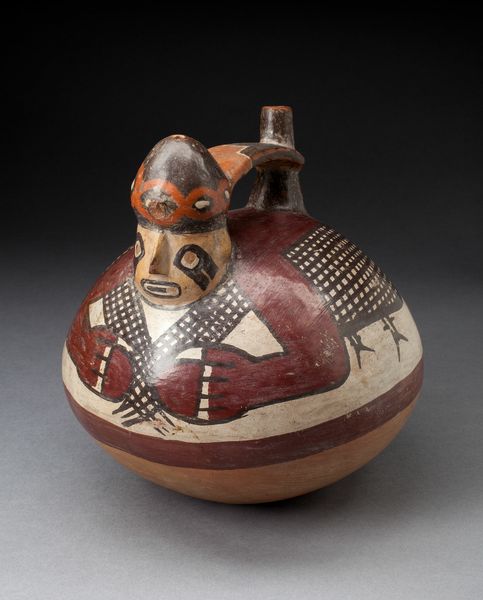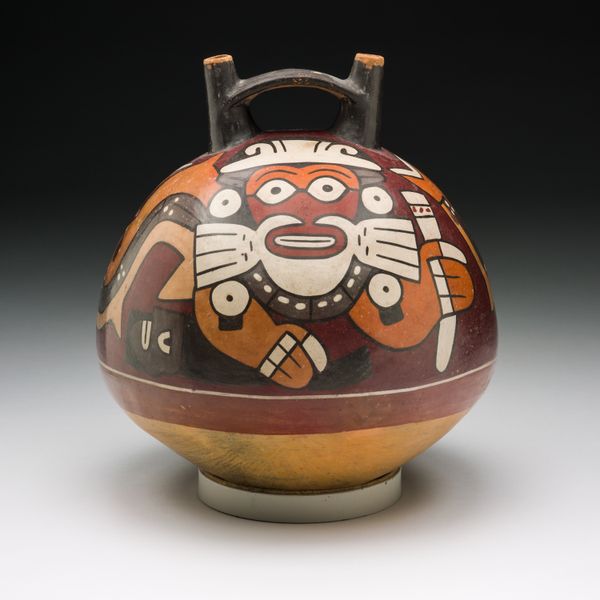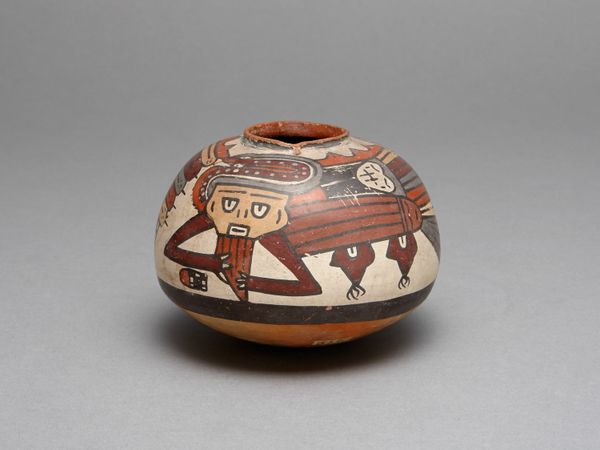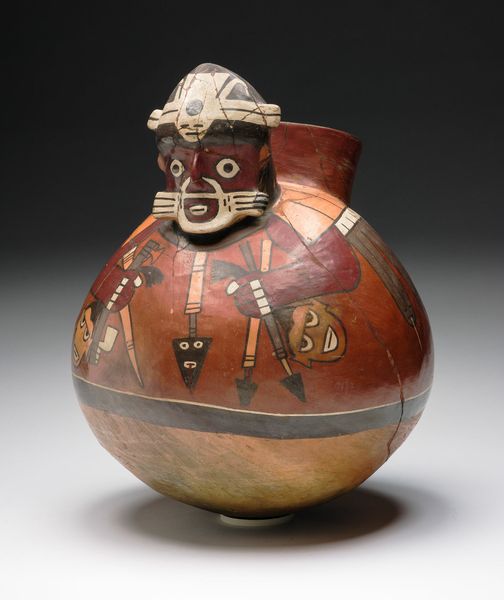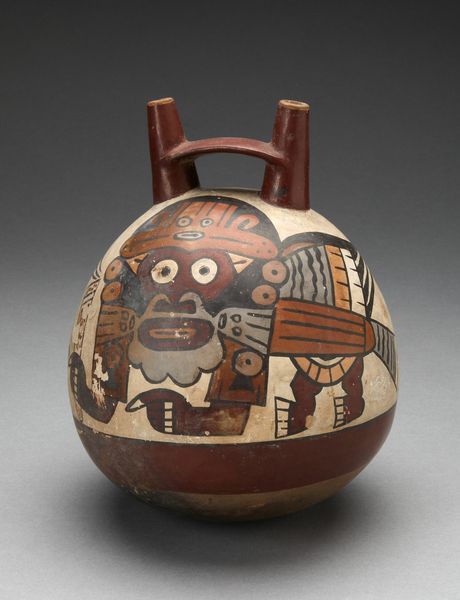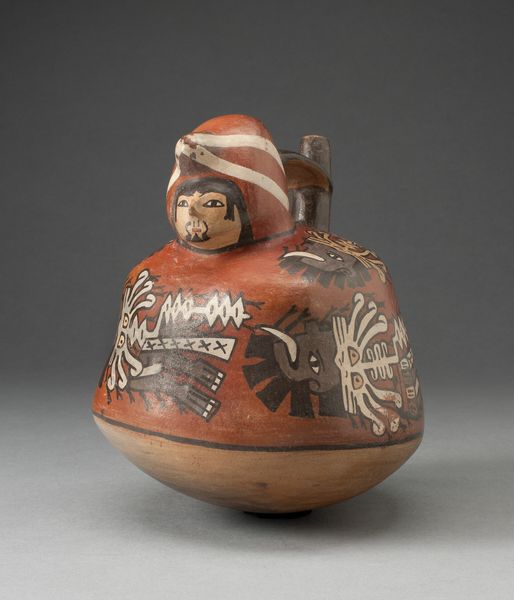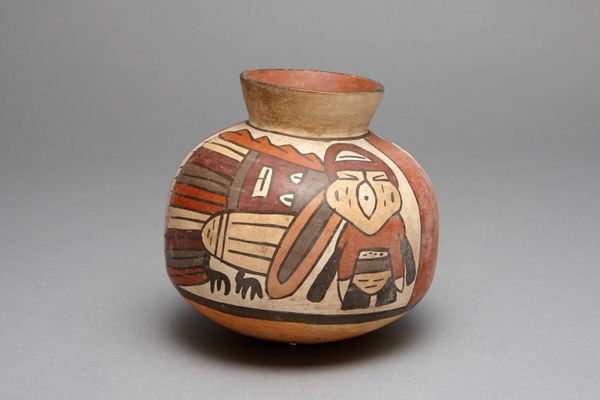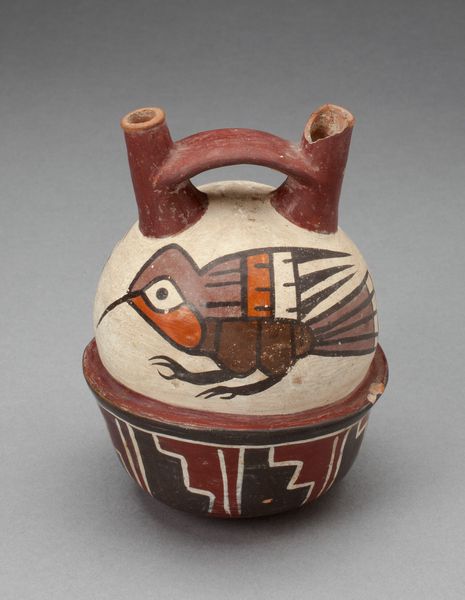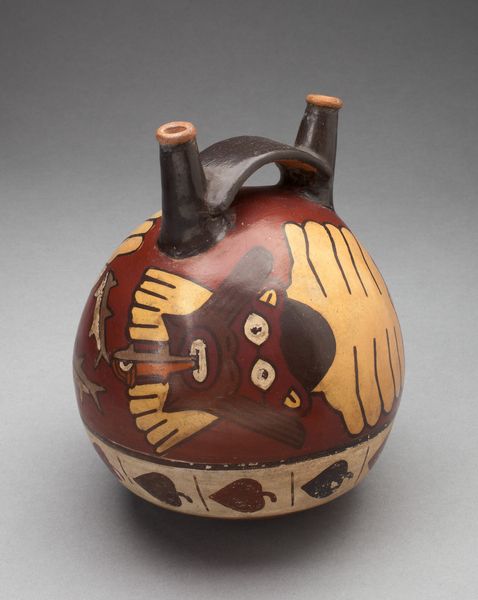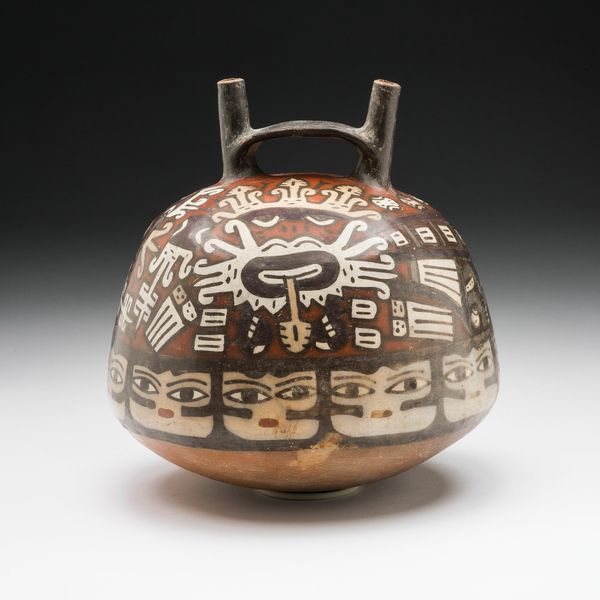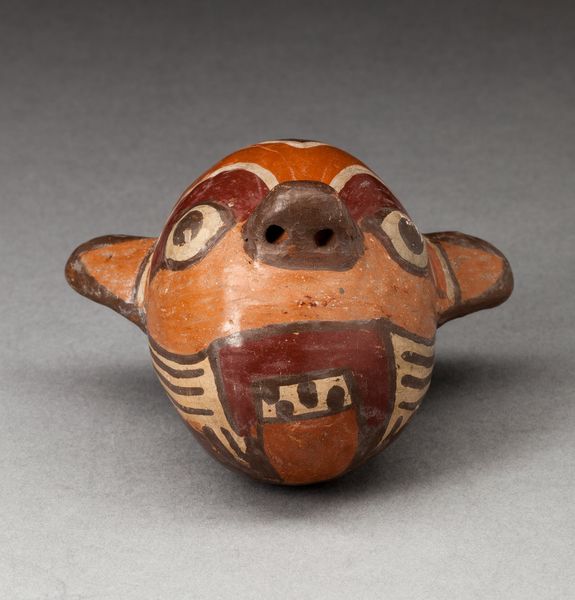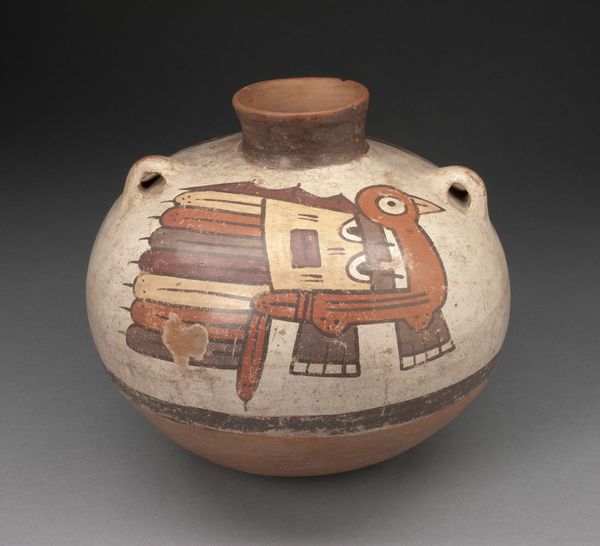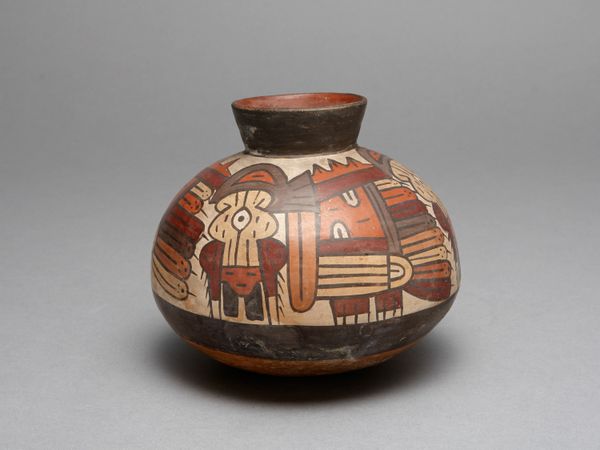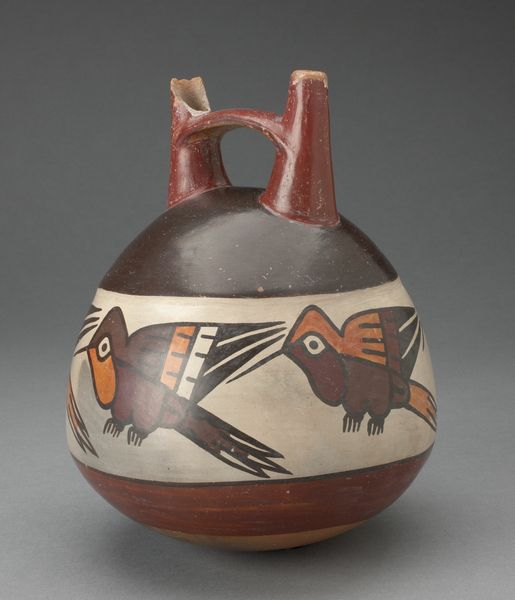
ceramic
#
ceramic
#
figuration
#
vessel
#
ceramic
#
indigenous-americas
Dimensions: H.: 14.3 cm (6 5/8 in.)
Copyright: Public Domain
Editor: This striking ceramic piece, titled "Vessel of a Harvester," dates back to around 350 to 500 AD, crafted by the Nazca people. The figure emerging from the vessel is quite captivating. What visual cues jump out to you? Curator: The figure holds a staff-like object featuring a stylized bird or fish, a symbol rich in cultural resonance. Consider what those icons could represent in the Nazca cosmology: a connection to the natural world, to specific deities, or even to social hierarchies within the community. Do you notice any other repetitive shapes? Editor: Now that you mention it, there's a repeated geometric design throughout, even incorporated into the figure's headdress. Could it tie into agriculture practices in any way? Curator: Absolutely! The repeating motifs suggest continuity and cyclical processes – crucial in an agricultural society. How do these repetitions inform your understanding of the piece’s function? Think beyond its practical use as a vessel. Editor: It almost feels like a symbolic container, holding not just liquid but the very essence of their agricultural beliefs. So, is the vessel then performing ritual work, connecting the earthly and the spiritual realms? Curator: Precisely! The art embodies collective memory, a continuous symbolic language passed down through generations. The vessel does more than just hold liquids; it holds stories. This vessel is about continuity, cultural memory, and the enduring power of symbols. Editor: This makes me rethink its simplicity, understanding the weight these images carried for the Nazca people and how we are connected to that memory, even today. Curator: Indeed, and as a curator, my role is to unravel and convey these intricate layers of meaning for a contemporary audience.
Comments
No comments
Be the first to comment and join the conversation on the ultimate creative platform.
